From the Institute for the Humanities
The Institute for the Humanities has awarded fellowships to seven faculty and five graduate students to support research projects they will pursue during 2000–2001.
“The Executive Committee of the Institute, with the help of the outside evaluators, had to make many difficult choices among an exceptionally strong group of applicants,” said Institute Director Tom Trautmann, who chaired the selection meetings. “We think that next year’s cohort of Fellows is one of the best ever.” The outside evaluators for the faculty fellowship selection process were Norma Field (East Asian languages and civilizations, University of Chicago), Thomas Laqueur (history, University of California, Berkeley) and Gwendolyn Wright (architecture, Columbia University). Helping to select the graduate student fellows were Richard Ford (anthropology), Lemuel Johnson (English) and Pat Simons (history of art).
The Institute’s resident fellows will include the following faculty and student members:
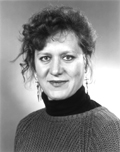
Carol Bardenstein
Carol Bardenstein (assistant professor, Near Eastern studies), “Cultivating Attachments: Discourses of Rootedness in Palestine/Israel.” Though much has been written about the history of competing Palestinian and Israeli territorial claims, Bardenstein finds that the equally potent contested spheres of a more symbolic nature have been understudied. These would include topics such as competing constructions of memories of the same places, contested appropriations of folkloric traditions, and conflicting claims to symbols of rootedness and authenticity. She has undertaken a comparative history and cultural analysis of three of the most powerful and contested symbols in Palestinian and Israeli discourses of indigenousness: trees (planting, caring for, uprooting, remembering, burning); the “Jaffa orange”; and the prickly-pear cactus (subbar/tsabar/sabra). She is tracing the inception and development of these symbols, analyzing the many ways they have figured as means of asserting (one’s own) or denying (the other’s) rootedness and “natural connection” to the Holy Land and “native authenticity.”
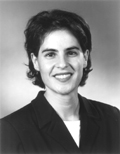
Gina Bloom
Gina Bloom (English), “Choreographing Voice: Staging Gender in Early Modern England.” Bloom is examining how the human voice is described in a wide variety of 16th- and 17th-century English texts, including medical books, music treatises, religious sermons, pronunciation manuals and especially stage plays. Through an analysis of early modern narratives about vocal communication, she disputes an assumption prevalent in feminist scholarship: that in cultures where female expression is constrained, women are inherently disempowered. In early modern England, men’s comparatively greater freedom to speak did not ensure power or agency, for vocal communication was imagined to be always at risk of failing. Her research discovers “female agency” emerging from these conditions of “vocal instability.” Bloom will hold the James A. Winn Graduate Student Fellowship.

Michael Bonner
Michael Bonner (associate professor, Near Eastern studies), “Circulation and Exchange in the Transition from Late Antiquity to Early Islam.” Bonner, who will be the Helmut S. Stern Faculty Fellow, seeks to identify notions of circulation and exchange in the Arabian peninsula just before and during the rise of Islam, in particular the stark, encroaching distinction between rich and poor. He will assess how the political economy of the early Islamic world arose from responses to and reinterpretations of older Arabian notions in dramatically different circumstances. As these questions can be considered only through a re-interrogation of the sources of the rise of Islam, Bonner will be closely examining much of the corpus of pre-Islamic Arabic poetry, together with narrative and normative sources for the early Islamic period.
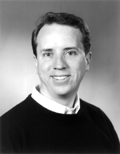
Matthew Connelly
Matthew Connelly (assistant professor, history and public policy), “Population Control: An International History from the Eugenics Movement to the Cairo Conference.” Connelly plans to spend next year doing exploratory reading and research on the international politics of population growth. Beginning with the public health policies of colonial powers and the ideological origins of the family planning movement, his project will trace the intertwined histories of population control, decolonization and “development,” ending with the demographic transformation of former colonial powers—including the United States—due to immigration from once-dependent areas.
Gillian Feeley-Harnik
Gillian Feeley-Harnik (professor, anthropology), “The Ethnography of Creation.” As an ethnographer, Feeley-Harnik wonders: “How exactly do people grasp the mystery of life in their everyday social practices, in reckoning who is kin to them, and how they are connected to creatures living and dead?” Her approach is to examine how social relations among and between human beings and animals affected the ways Americans responded to debates over “Divine Creation” and “Natural Selection” in the mid-nineteenth century. To do so, she turns to the work of Charles Darwin and his contemporary, Lewis Henry Morgan, the founder of American anthropology. Understanding how Morgan, Darwin and their contemporaries saw their social and natural histories, Feeley-Harnik says, “may help us to understand the persistence of controversies over creation in the United States, as well as changing perspectives on culture and ecology in anthropology and new possibilities for their integration.” She will be the Hunting Family Faculty Fellow.
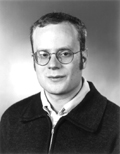
Charles Goodman
Charles Goodman (philosophy), “Ancient Dharmas, Modern Debates: Towards an Analytic Philosophy of Buddhism.” According to Goodman, “While searching for a coherent account of the nature of mind, the status of science and the structure of the universe, Western philosophers have again and again run into problems so hard that, to this day, no one has the slightest idea how to solve them. Help may be coming, however, and from an unexpected source.” He says that the Buddhist philosophy known as the Abhidharma offers us both a diagnosis of the fundamental errors that led to at least some of these intractable problems and a radically different alternative picture that may allow us to escape them. “Of course,” he adds, “the Abhidharma has its own problems—but at least they are different problems. There may be some chance that they will prove easier to solve.”
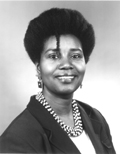
Arlene Keizer
Arlene Keizer (assistant professor, English and Afroamerican and African studies), “Black Subjects: Theories of Identity Formation in Contemporary African American and Caribbean Literature.” Keizer argues that Black writers in the United States and the Anglophone Caribbean are intervening in a theoretical debate about identity in the African Diaspora by utilizing slave characters and the condition of slavery as foci around which to craft theories about the nature and formation of Black subjectivity. Her analysis of African American and Caribbean critical/theoretical formulations will reveal the variety of ways in which theory can be articulated, and demonstrate how theories from New World Black cultures dovetail with, critique or completely diverge from mainstream theories of subjectivity. Keizer will be the A. Bartlett Giamatti Faculty Fellow.

Fernando Lara
Fernando Lara (architecture), “Popular Modernism: An Analysis of the Acceptance of Modern Architecture in 1950s Brazil.” There is a general perception, says Lara, that modern architecture was never popular. Yet, for some reason, it was better received in Brazil than in Europe or the United States. Lara is investigating the economic, cultural, social and aesthetic components that might explain this phenomenon. The main thrust of his research is “to review Brazilian Modern Architecture (especially the later middle-class housing application) in order to discuss from an architectural perspective some of the contradictory relationships between modernity, modernism and modernization.” Lara will be the Hunting Family Graduate Student Fellow.
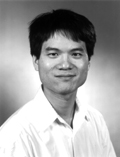
Morgan Liu
Morgan Liu (anthropology), “Uzbek Sensibilities of Authority and Political Imaginary in an ex-Soviet Central Asian City.” Liu is studying practices of Islam in Uzbek communities in the ex-Soviet Central Asian City of Osh in the independent republic of Kyrgyzstan. His focus is on what qualities Uzbeks associate with “legitimate” authority, how ideas of moral authority permeate daily life in the neighborhoods, and how those ideas inform their self-imagined place in the wider world after the dissolution of the Soviet Union. Liu will be the Sylvia “Duffy” Engle Graduate Student Fellow.

Eileen Pollack
Eileen Pollack (assistant professor, English), “Woman Walking Ahead: In Search of Catherine Weldon and Sitting Bull.” Pollack is completing a book of creative nonfiction about Catherine Weldon, a nineteenth-century painter and Indian rights activist who lived with Sitting Bull and his family during the last years of his life, acting as his lobbyist, translator, adviser, secretary, biographer and friend. The book chronicles Pollack’s journey as she tried to track down information about Weldon’s 1889 trek from Brooklyn to Dakota Territory to meet with Sitting Bull, her confrontation with the agent in charge of the reservation where Sitting Bull lived, her attempt to help the Sioux fight to keep their tribal lands, her eviction from the reservation, her return the following spring with her young son, her involvement in the Ghost Dance Religion and the last war between Sitting Bull’s people and the government, her son’s death, her flight to Kansas City, her final years in New York and the whereabouts of her four portraits of Sitting Bull. Pollack will hold the John Rich Professorship.
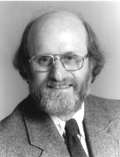
Lawrence Sklar
Lawrence Sklar (professor of philosophy), “The Life of a Theory.” Fundamental theories in science have extended lifetimes, says Sklar, and the theories are not static entities but change and develop over time. What motivates such changes in these foundational theories? What kinds of changes do they undergo? What are the consequences of these changes for our understanding of the nature of the theory in question and of the world that it is intended to describe and explain? Do our philosophical and methodological ideas of what a theory ought to be and what a scientific explanation consists in change in response to the changing features of fundamental theory? Sklar plans to explore these questions by looking at the way in which classical dynamics—the central foundational theory of physics for three centuries—grew and changed from its earliest formulations until its replacement in the twentieth century by its successor, foundational physical theories. He will hold the Steelcase Research Professorship.
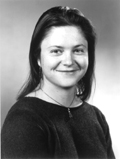
Sarah Womack
Sarah Womack (history), “Colonialism and the Collaborationist Agenda: Pham Quynh, France, and the Invention of a Neo-traditional Vietnam.” Pham Quynh is considered by many revolutionaries and Western historians to be the “arch-collaborator” of the French colonial period in Vietnam. Although viewed by many as traitor and as lackey to French colonial ambitions, Pham Quynh saw himself as a patriot, a visionary and social revolutionary. Womack notes that colonialism is usually viewed through the binary of colonized and colonizer. Her study of Pham Quynh will test her hypothesis that adopting instead an “accommodation-based model of colonial relationships” can provide new insights and greater understanding of colonialism and colonial societies than current models. Womack will be the Rackham Dean’s Graduate Student Fellow.

